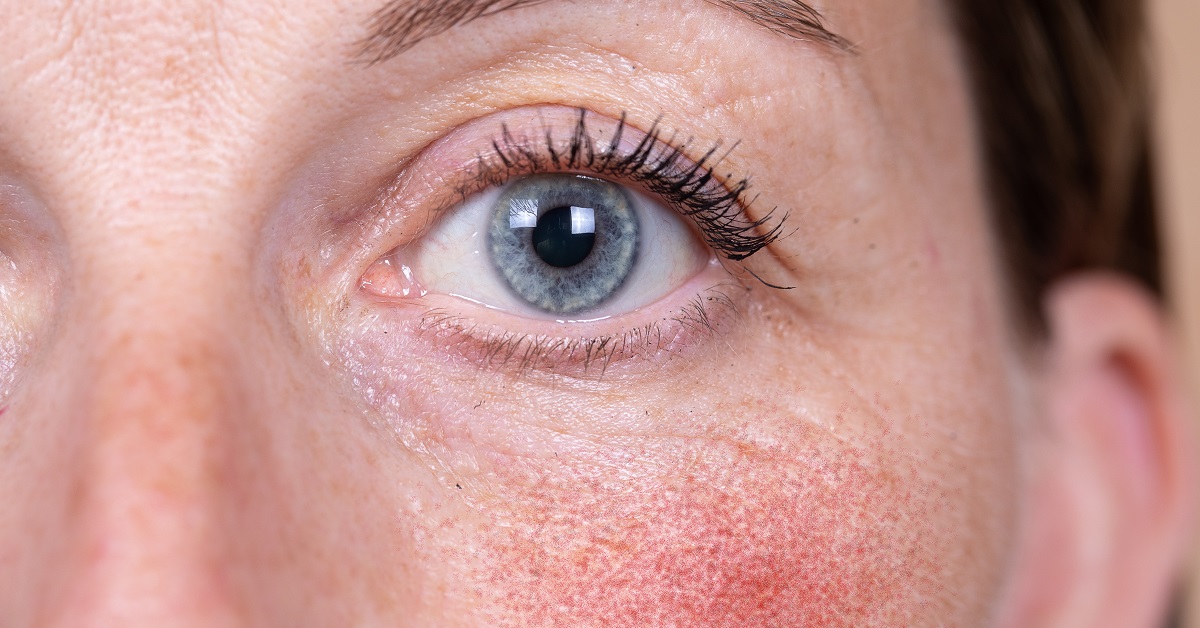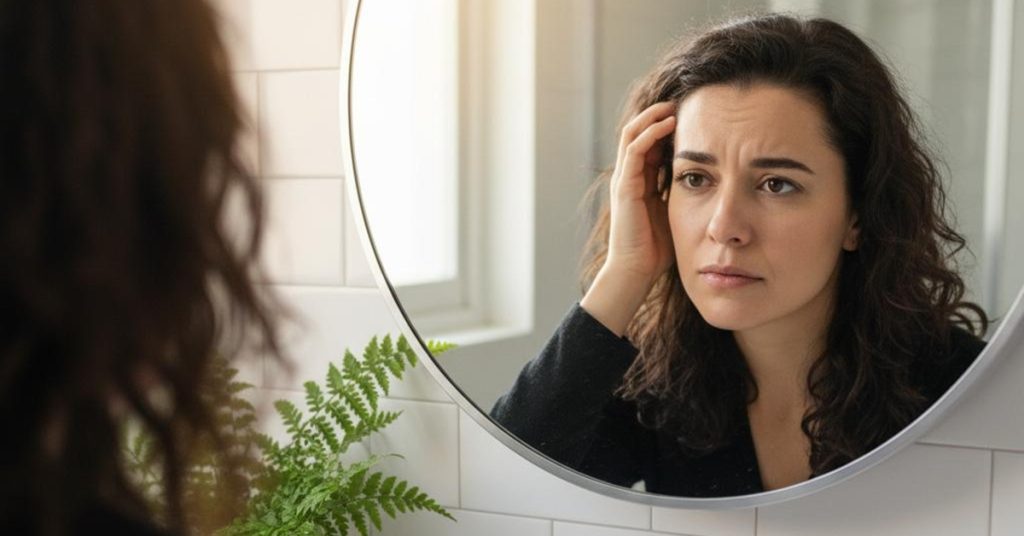The Marietta Dermatologist’s Guide to Rosacea

Welcome to the Marietta Dermatologist’s Guide to Rosacea. The purpose of this guide is to provide comprehensive information to those affected by rosacea, a chronic skin condition that primarily affects the face. Here you’ll find insights into its causes, symptoms, and most importantly, effective treatment options. Whether you’re newly diagnosed or have been managing rosacea for years, this guide will help you better understand the condition and take appropriate steps toward managing it effectively.
What is rosacea?
Rosacea is a common skin condition, largely prevalent in fair-skinned individuals of middle-aged and older demographics. Characterized by redness, swelling, and visible blood vessels in the face, it may also produce small, red, pus-filled bumps. While the exact cause of rosacea remains unknown, it’s believed to be a combination of hereditary and environmental factors. Triggers often include hot beverages, spicy foods, alcohol, temperature extremes, sunlight, stress, and certain medications.
What are the symptoms of rosacea?
The symptoms of rosacea can vary significantly from one individual to another. However, common signs often include facial redness, swollen red bumps, eye problems, and an enlarged nose. Facial redness, similar to blushing, often starts at the nose and spreads to the rest of the face. The swollen, red bumps, mirroring acne, may contain pus and make the skin feel hot and tender. Eye problems, such as dryness, irritation, and swollen, reddened eyelids, are also frequent. What’s more, a condition known as rhinophyma may cause the skin on the nose to thicken and the nose to appear bulbous. It is crucial to consult one of our Marietta dermatologists if persistent redness or other symptoms are experienced, as early treatment can prevent rosacea from worsening over time.
Can rosacea be cured or is it a lifelong condition?
At this time, there is no definitive cure for rosacea. However, with appropriate treatment and lifestyle changes, it can be managed effectively. Treatment options vary depending on the severity of symptoms and may include topical and oral medications, laser treatments, or photodynamic therapy. Additionally, avoiding known triggers can help minimize redness and flare-ups. While rosacea will not disappear on its own, careful management by our Marietta dermatology team can greatly reduce its impact.
Are there any triggers that can worsen rosacea symptoms?
Several factors can trigger or worsen rosacea symptoms. These triggers can include excessive sun exposure, strenuous exercise, certain medications, hot beverages, and foods high in spice or heat. It’s important to identify what personal triggers may cause rosacea flare-ups so they can be avoided as much as possible. Other common environmental factors that can make the condition worse include cold weather, wind, humidity, stress, and alcohol consumption.
How is rosacea diagnosed by doctors?
Our Marietta dermatologists use a variety of methods to diagnose rosacea. Typically, we will perform a physical examination and ask about your medical history. Additionally, we may use visual inspection to assess symptoms and rule out other disorders. While there is no specific test for rosacea, certain tests can be used to rule out alternative diagnoses such as lupus. Additionally, we may order imaging tests to rule out conditions that have similar symptoms. Blood tests are also sometimes used to assess for infection or other underlying health issues. Once the diagnosis of rosacea is made, your Marietta dermatologist can recommend the most suitable form of treatment.
What are the available treatment options for rosacea?
We offer our Marietta patients a variety of rosacea treatment options. These may include topical and oral medications, laser treatments, photodynamic therapy, and lifestyle modifications. Topical therapies such as creams or gels can be used to reduce redness and inflammation. Oral antibiotics may also be prescribed in severe cases. Laser treatments can target visible blood vessels and help reduce the appearance of redness, while photodynamic therapy is used to reduce the appearance of pustules. Finally, lifestyle modifications such as avoiding triggers and using sun protection can help improve skin health and prevent flare-ups.
Are there any home remedies or natural treatments for rosacea?
There are some natural remedies available for the treatment of rosacea. These can include using aloe vera gel to help soothe skin, applying a cool compress to reduce inflammation, and taking lukewarm baths with oatmeal or baking soda to help relieve skin irritation. Additionally, experimenting with different moisturizers and facial cleansers may also prove beneficial as these products can help soothe skin and reduce flare-ups. In addition to these remedies, it’s important to practice sun protection, especially here in Marietta where the sun can be brutal, avoid triggers, and manage stress levels to keep rosacea symptoms under control.
Can rosacea be prevented or managed through lifestyle changes?
Lifestyle changes can be a very effective way to manage and prevent rosacea symptoms. These include avoiding known triggers such as hot beverages, spicy foods, alcohol, temperature extremes, sunlight, stress, and certain medications. Additionally, it’s important to wear sunscreen with SPF 30 or higher every day to protect against sun damage and UV rays. Managing stress levels is also important, as stress can worsen symptoms. Finally, we tell our Marietta rosacea patients that staying hydrated and eating a balanced diet may help reduce inflammation and keep skin looking healthy. All of these tips can be used to help minimize the impact of rosacea while maintaining beautiful, healthy skin.
Is rosacea contagious or hereditary?
Rosacea is neither contagious nor hereditary, although it is believed to be linked to both genetic and environmental factors. While the exact cause of rosacea remains unknown, certain triggers can worsen symptoms and make the condition more difficult to manage. It’s important to identify known triggers and make lifestyle changes that may help minimize flare-ups. In addition, various treatments are available to help keep rosacea under control. Consulting one of our Marietta dermatologists can help identify the most suitable form of treatment and develop an effective rosacea management plan.
How does diet affect symptoms of rosacea?
Diet has been shown to play an important role in the management of rosacea symptoms. Foods that are high in sugar, fat, and spicy ingredients can cause flare-ups and should be avoided as much as possible. Additionally, foods high in omega-3 fatty acids such as salmon, walnuts, and flaxseeds may help reduce inflammation. Eating a balanced diet that includes fresh fruits and vegetables and avoiding processed or fast food is also recommended for our Marietta rosacea patients. Finally, drinking plenty of water throughout the day will help hydrate the skin and keep inflammation to a minimum. All of this combined may help improve skin health and reduce rosacea symptoms.
What skincare products should I use if I have rosacea?
When shopping for skincare products, it’s important to look for gentle, fragrance-free formulas that won’t irritate sensitive skin. Cleansers and moisturizers with ingredients such as hyaluronic acid, aloe vera, and glycerin can help soothe skin inflammation. Additionally, products that contain antioxidants such as green tea may also reduce the appearance of redness and irritation. Finally, it’s important to apply sunscreen every day to protect the skin from sun damage and minimize flare-ups. Consulting with one of our Marietta aestheticians may also help you choose the right products for your skin type and rosacea symptoms.
Can rosacea affect other parts of the body besides the face?
Rosacea most commonly affects the faces of our Marietta dermatology patients, but it can also appear on other parts of the body such as the neck, chest, and back. While these areas may not present with the same symptoms as facial rosacea (such as redness and bumps), they may experience increased sensitivity or inflammation. It’s important to use gentle skincare products on these areas and practice sun protection to minimize flare-ups.
What should I do if I think I have rosacea?
If you think you have rosacea, it’s important to consult with one of our Marietta dermatologists as soon as possible. They can assess your symptoms and provide an accurate diagnosis. In some cases, we may recommend further tests such as imaging or blood tests to ensure that the condition is correctly identified and treated. With proper management, rosacea sufferers can rest assured knowing that there are a variety of treatments available to help reduce the appearance of symptoms.
How can DESSNA help?
Managing rosacea can be a complex journey, but you are not alone. If you suspect that you may be suffering from this skin condition, it’s immensely important to seek professional guidance. At DESSNA, our dedicated team of dermatologists is fully equipped with the expertise and state-of-the-art tools to diagnose and manage rosacea effectively, tailoring treatment plans to your unique needs and lifestyle. Don’t let rosacea dictate the quality of your life. Take that decisive step toward better skin health today. Reach out to us and schedule your appointment. Your skin will thank you.



